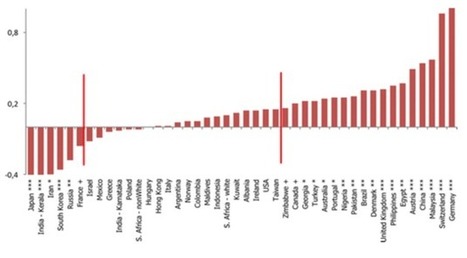When a book telling people to throw away almost everything they own becomes a best seller and the start of a spiritual movement, it’s a good indication we’re consuming too much. But it’s hard to reconcile this idea when so many families, even in some of the world’s most durable economies, feel like they are barely getting by.
Households have never had so many material goods, yet we hear constant reports of economic anxiety and feelings of hopelessness.
The problem is livings standards. Our expectations of what we should own have increased—but incomes, for many of us, haven’t kept up. The disconnect leaves households vulnerable and struggling.
There is no doubt living standards are rising. People around the world, of all income levels, are living longer, finding more leisure time, and enjoying more luxuries than at any time in history. Remember, only 30 years ago, air-conditioning was a luxury. Now it’s practically seen as a necessity....



 Your new post is loading...
Your new post is loading...











Very thoughtful post and recommended reading. 9/10